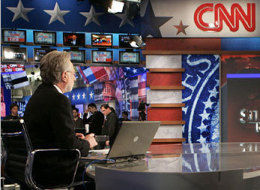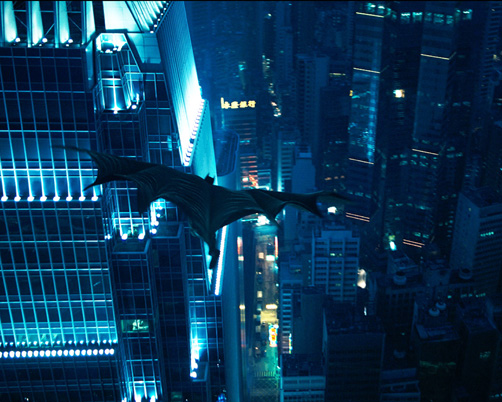
With his 1975 film, Nashville, director Robert Altman located a connectedness in people's disconnectedness. He created fluidity out of chaos. Seemingly without regard, the film moved from one place in town to another, following characters with no apparent relation or connection to one another. Nashville instead captured the spirit of something much larger. Altman was also obsessed with details and atmospheres; with people filling a space and living in it. He was not after some great message. He didn't "use" narrative as a vehicle for overlying perspectives or ideas. He was after the motion of life, using one geographical destination as a lens through which to observe it. Narrative emerged from movements, actions, and moments.
It's no wonder that Altman is given special thanks in the end credits of Jonathan Demme's Rachel Getting Married, a film made very much in the spirit of that intangible Altman sensibility. The plot focuses the affairs of a family as it prepares for a wedding over the course of a couple of days. Rachel (Rosemarie Dewitt) is due to marry Sidney (Tunde Adebimpe), and the family gathers to organize final preparations for the ceremony and celebration at their house. Although the event for which crowds gather is altogether different, Demme's naturalistic approach to character and tone enables him to paint an intimate portrait of a real family. Where a lesser film would center itself aesthetically and tonally on the conflicts of the main characters, Rachel Getting Married is all about the "small" details --the exchanges between new acquaintances, former spouses, and everyone else. There is a sense that we're looking through the lens of our own eyes as we wander around this house, listening to conversations, gauging facial expressions, and surveying reactions.
The key role in the film is Rachel's sister Kym (Anne Hathaway), who is greeted with an uneasy sense of enthusiasm and overwhelming trepidation by her family. The small talk is accompanied by the expected smiles, hugs, and kisses, but is painfully and obviously hollow. At the same time, Rachel, a psychiatrist with all the right things to say, appears genuinely happy to see her sister, as do some others. But, as we learn, there are deep-ridden problems sustaining and bolstering the conflicts between family members. Kym's drug addiction is revealed to be the white elephant clouding every exchange and and encounter within the family.
The treasure of this film is not in the gradual unveiling of plot details, but in the intimate and intensely relatable portrayals of familial relationships. Demme is not attempting to represent "the American family." The core of this film is instead its dynamic observations of one particular family and the confluence of both similar and clashing ideals, perspectives, and backgrounds. Rachel Getting Married is not about anything more than the immediate and complex emotions it conjures. It is compelling in the purest sense of medium; connecting the viewer affectively and cerebrally to action on screen.
In many ways, taking part in this movie is as much a pleasure as it is demanding. This is a tricky relationship, but the best of movies involve you in an experience that is both external and internal. All viewers, those of us with and without families, can fundamentally relate to the conflicts of these characters. We see all their shortcomings, but we also feel those inexplicable and transient highs from just being with people and sharing something with them. The only flaws rest in the occasional insistence on significant dramatic moments, e.g. the lost brother plotline, Kym's relationship with her mother. The movie is at its best in moments between the drama, when quiet fills the air.
While a direct comparison to Nashville wouldn't be appropriate, both movies are propelled by keen observations of people in motion around an event. The players are different, all with different tasks, concerns, and wishes, but in both films the event is both lived and not; it becomes idea, or an ideal. The country festival of Nashville embodied deeper ideals and fleeting ideologies, and although the event here is shared among a more intimate group of people, the motions and feelings are nearly the same. That these actions are framed through a wedding, and in "real-time," i.e. without formalistic or narrative thematic threads guiding the viewer's perception and comprehension, every nuance and flaw can be experienced both in the moment and as a broader examination of relationships to which any viewer can relate.
The film ends with a wedding celebration so intoxicating and hopeful in its own right that, ironically, actually expands the distance between Kym, Rachel, and everyone else in the now-larger family. Rachel Getting Married culminates in a moment of sad beauty, lamenting the inherent void in human connection while finding hope in the transient moments when people come together.


